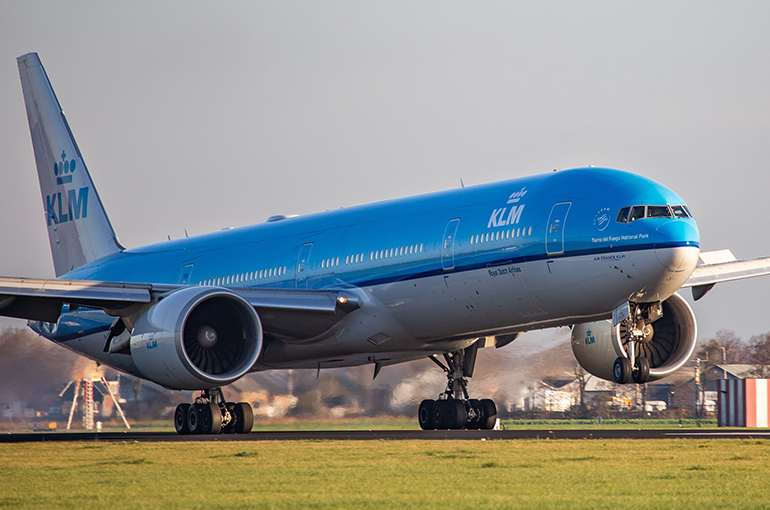 China Remains One of Air France-KLM's Most Important Markets Outside Europe, KLM CEO Says
China Remains One of Air France-KLM's Most Important Markets Outside Europe, KLM CEO Says(Yicai) Nov. 29 -- China is one of the most important markets outside Europe for Air France-KLM, the largest European airline group, according to KLM's first female chief executive officer.
"The Chinese market is very important to us because of the level of demand from business travelers, and business travel will remain essential," Marjan Rintel told Yicai. "We remain positive and open about the prospects and will be committed to strengthening our presence in China."
KLM is operating a total of 22 weekly passenger flights to four Chinese destinations in the winter season, and the airline's load factor was very high during the summer season, exceeding the levels in 2019, Rintel said.
"KLM will maintain close contact with relevant authorities and closely monitor market demand while being flexible to adjust schedules and capacity, improve customer experience by offering innovative products and services, and enhance its competitive advantage by leveraging its strength, such as signature services, dual-hub connectivity, extensive global network, and operational excellence," Rintel noted.
European carriers, including KLM, are facing challenges in increasing transport capacity after the Covid-19 pandemic eased, mainly because of the labor shortage, Rintel pointed out. Besides, circumventing Russian airspace results in one to two hours longer flight time, which means additional fuel costs, impacting flight schedules and crew rest, she added.
KLM is actively recruiting and training pilots for long-distance routes, Rintel said.
Another issue for the slow recovery of flight operations is that staff at embassies and consulates could not cope with the explosive rebound in demand for visa applications, said Wouter Vermeulen, general manager of Air France-KLM China.
KLM hopes to accelerate the recovery to the level before the Covid-19 pandemic in the next one to two years, according to Rintel.
On the backdrop of changing demand for air travel and industry challenges after the Covid-19 pandemic eased, Air France-KLM seeks cooperation with Chinese partners on flights and sustainable aviation fuels, Rintel noted.
Air France and KLM partnered with China Eastern Airlines to share revenue and costs, Rintel said, adding that one of her tasks in China is to discuss with China Eastern to expand their tie-up.
Meanwhile, the joint venture with China Southern Airlines came to a natural close at the end of 2021 and has since been turned into a tactical codeshare partnership, Rintel pointed out.
Air France KLM recently announced an order of 50 Airbus A350F aircraft for distance traveling, which can cause 40 percent less carbon dioxide emissions and are 50 percent quieter than its predecessor. In addition, the airline is also using more SAF to cope with the European Union's carbon emission requirements, Rintel said.
The availability of SAF is the biggest issue facing the company and the industry, she added. During this visit to China, Air France-KLM also discussed with Chinese state-owned lender Industrial and Commercial Bank of China about the possibility of working with ICBC and oil and gas giant PetroChina to increase the SAF supply by using kitchen oil waste from the Chinese market.
Editors: Zhang Yushuo, Futura Costaglione